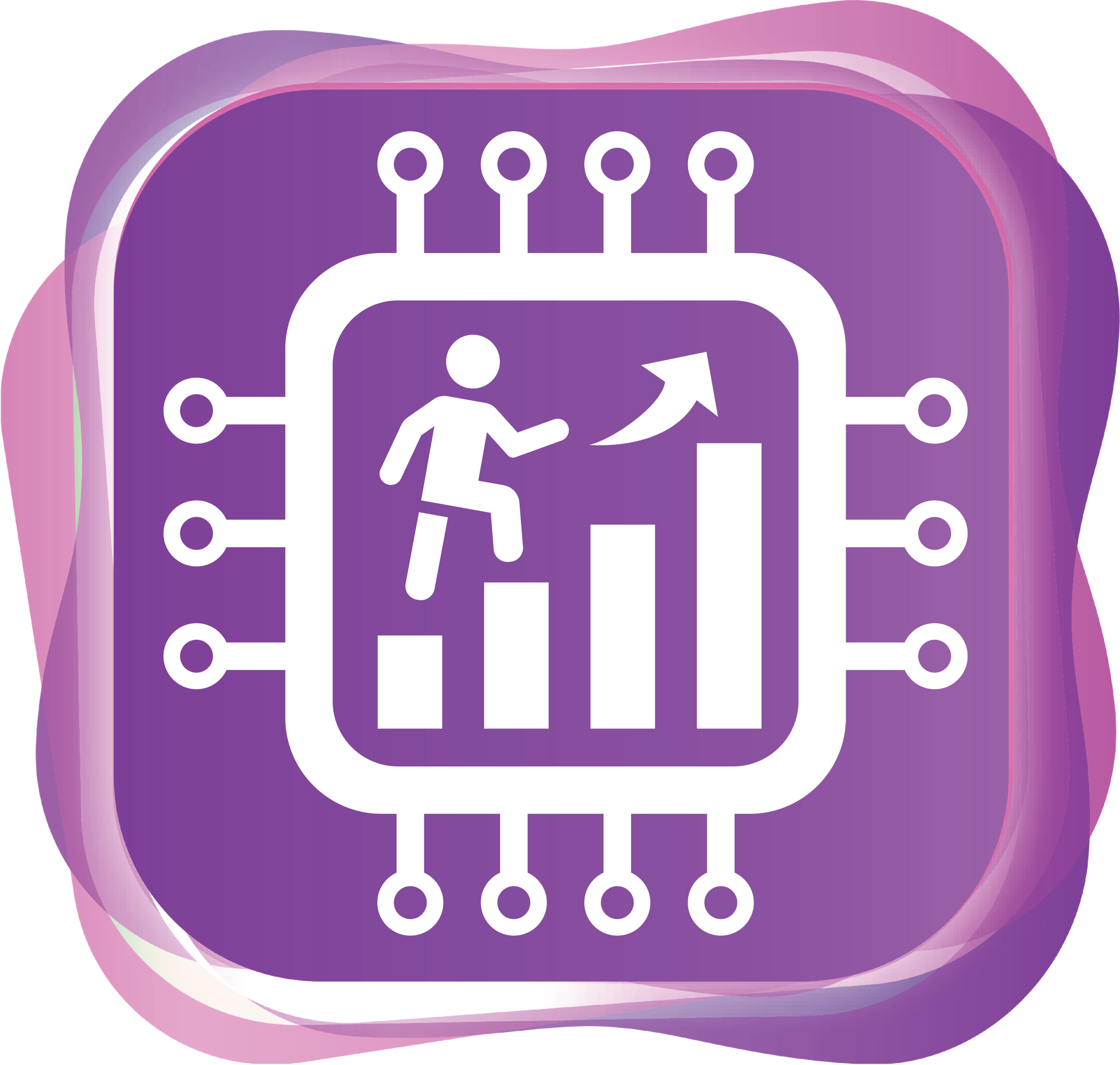 |
CCAI9004 Artificial Intelligence
|
Course Description
Capable machine learning systems will shape the future landscape of achievement, both in technical domains such as science and in creative domains such as art. Moreover, there are particular reasons for thinking that artificial intelligence (AI) will reshape large parts of human social and economic behaviour. These facts motivate a series of important questions. Most generally: How do artificial achievements affect human beings’ ability to flourish? Will artificial achievement (and creativity) displace human achievement and creativity? What can we do right now to ensure a future where all humans are able to develop and exercise the capacities that enable them to live flourishing, meaningful lives? More particularly: How, exactly, will AI revolutionize economic achievement? What are the implications for economic inequality and social mobility? How will AI redefine social achievements and relationships? What are the potential benefits and risks of AI-mediated communication? This course aims to equip students with the tools for thinking clearly about these and other important questions about the widespread effects of capable machine learning systems on human beings’ ability to live flourishing lives.
Course Learning Outcomes
On completing the course, students will be able to:
- Critically analyze the impact of AI achievements on various aspects of society, including economic, social, political, cultural, and ethical dimensions.
- Evaluate the potential benefits and risks associated with AI advancements, demonstrating an understanding of the complexities and interconnectedness of these issues.
- Develop the ability to engage in informed and nuanced discussions about the ethical implications of AI, considering diverse perspectives and cultural contexts.
- Apply critical thinking and analytical skills to assess the potential impact of AI on specific areas of interest, such as the workplace, education, or healthcare.
- Collaborate effectively in a group setting to develop and present a proposal for an AI application that addresses a societal challenge while upholding ethical principles.
Offer Semester and Day of Teaching
First semester (Wed)
Study Load
| Activities | Number of hours |
| Lectures | 24 |
| Tutorials | 10 |
| Reading / Self-study | 50 |
| Assessment: Essay / Report writing | 20 |
| Assessment: Presentation (incl preparation) | 10 |
| Assessment: Group project | 10 |
| Total: | 124 |
Assessment: 100% coursework
| Assessment Tasks | Weighting |
| In-class participation and discussions | 20 |
| Analytical writing | 25 |
| Case study | 20 |
| Group project and presentation | 35 |
Required Reading
Week 1: Introduction: What is Human Flourishing and Achievement?
- Aristotle. Nicomachean Ethics. [Book I: Chaps. 7-9 on Eudaimonia; Book X: Chaps. 6-8 on the contemplative life and happiness]
- Bradford, G. (2015). Achievement. Oxford University Press. [Chap. 1 “An Explanatory Challenge”; Chap. 2 “The Subject Matter of Achievement”]
Week 2: AI and Economic Achievement: Productivity, Inequality, and the Future of Economic Value
- Acemoglu, D., & Restrepo, P. (2020). The Wrong Kind of AI? Artificial Intelligence and the Future of Labor Demand. Cambridge Journal of Regions, Economy and Society, 13(1), 25-35.
- Brynjolfsson, E., & McAfee, A. (2014). The Second Machine Age: Work, Progress, and Prosperity in a Time of Brilliant Technologies. W. W. Norton & Company. [Chap. 9]
Week 3: AI and Social Achievement: Equity, Justice, and Algorithmic Bias
- Mittelstadt, B. D., Allo, P., Taddeo, M., Wachter, S., & Floridi, L. (2016). The ethics of algorithms: Mapping the debate. Big Data & Society, 3(2). From https://doi.org/10.1177/2053951716679679
Week 4: AI and Political Achievement: Governance, Democracy, and Power
- Danaher, J. (2016). The Threat of Algocracy: Reality, Resistance and Accommodation. Philosophy & Technology, 29(3), 245-268.
- Calo, R. (2021). Modeling through. Duke Law Journal, 71, 1391-1423.
Week 5: AI and Cultural Achievement: Art, Creativity, and Human Expression
- Aesthetics for Birds. (2023, November 2). Eight Scholars on Art and Artificial Intelligence. From https://aestheticsforbirds.com/2023/11/02/eight-scholars-on-art-and-artificial-intelligence/
- Brainard, L. (2025). The curious case of uncurious creation. Inquiry, 68(4), 1133-1163.
Week 6: Responsibility, Accountability, and the Public Good
- Danaher, J. (2016). Robots, law and the retribution gap. Ethics and Information Technology, 18(4), 299-309.
- Matthias, A. (2004). The responsibility gap: Ascribing responsibility for the actions of learning automata. Ethics and Information Technology, 6(3), 175-183.
Week 7: AI and Work
- Danaher, J. (2017). Will life be worth living in a world without work? Technological unemployment and the meaning of life. Science and engineering ethics, 23(1), 41-64.
- Danaher, J. (2019). The Case for a Post-Work Future. In J. Danaher & B. D. Earp (Eds.), Cyborgs, Robots, and the Human Other: The Existential Threat of Posthuman Technologies. Palgrave Macmillan. [Or a similar piece by Danaher on the value of work]
- Graeber, D. (2018). Bullshit Jobs: A Theory. Simon & Schuster. [Chap. 1]
Week 8: AI and End of Life Care
- Earp, B. D., et al. (2024). A personalized patient preference predictor for substituted judgments in healthcare: Technically feasible and ethically desirable. The American Journal of Bioethics, 24(7), 13-26.
- Sharadin, N. (2024). Personalized patient preference predictors are neither technically feasible nor ethically desirable. The American Journal of Bioethics, 24(7), 62-65.
Week 9: AI and Existential Risk
- Bostrom, N. (2012). The superintelligent will: Motivation and instrumental rationality in advanced artificial agents. Minds and Machines, 22, 71-85.
- Sharadin, N. (2024). Promotionalism, orthogonality, and instrumental convergence. Philosophical Studies, 1-31.
Week 10: AI and Moral Risk
- Butlin, P., et al. (2023). Consciousness in artificial intelligence: insights from the science of consciousness. arXiv preprint arXiv:2308.08708.
- Long, R., et al. (2024). Taking AI welfare seriously. arXiv preprint arXiv:2411.00986.
Course Co-ordinator and Teacher(s)
| Course Co-ordinator | Contact |
| Professor N.P. Sharadin School of Humanities (Philosophy), Faculty of Arts |
Tel: 3917 2796 Email: sharadin@hku.hk |
| Teacher(s) | Contact |
| Professor N.P. Sharadin School of Humanities (Philosophy), Faculty of Arts |
Tel: 3917 2796 Email: sharadin@hku.hk |

